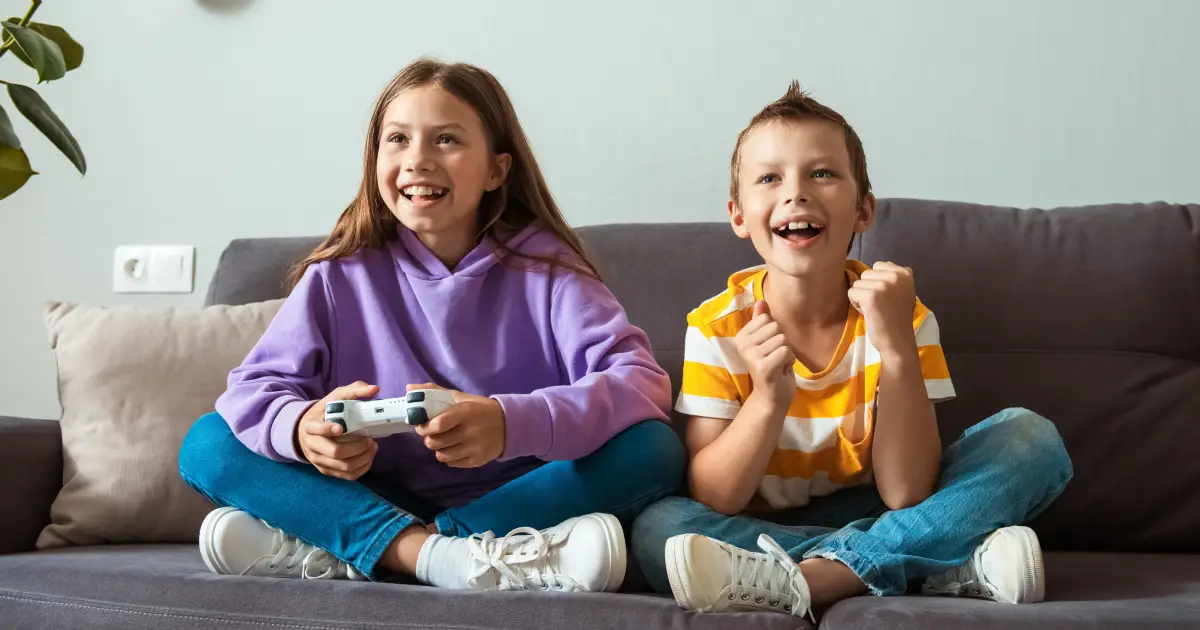What Types of Online Games are Beneficial for Kids With Auditory Processing Disorder
For children with Auditory Processing Disorder (APD), navigating the world of sounds can be challenging, affecting their ability to interpret what they hear despite having normal hearing. These processing difficulties can impact academic performance, particularly when it comes to teaching a child with APD to read; online games developed explicitly for target auditory discrimination, sequencing, and memory can significantly improve processing skills while keeping children engaged and motivated.
Digital tools have evolved to address these specific learning needs through gamification. There are many apps developed for children with spatial processing disorder that suggest clinically proven remediation through entertaining gameplay. These interactive experiences can help children sharpen their listening skills in a low-pressure environment, allowing them to practice following directions, distinguishing between similar sounds, and processing auditory information at their own pace.
When selecting online games for children with APD, parents should look for those that incorporate visual supports alongside auditory components. Games that include drawing activities while listening to stories, or those that build listening comprehension through gradual challenges can be particularly effective. The right combination of fun and therapeutic value ensures children remain motivated while developing key auditory processing skills.
Attention: This content should not be used as a substitute for medical advice. Consult with a qualified healthcare professional for proper diagnosis and treatment.
Key Takeaways
- Online games targeting auditory discrimination and sequencing can improve processing skills in children with APD while maintaining their engagement.
- Apps with clinically proven benefits provide structured auditory training through an enjoyable, game-based format.
- Visual supports combined with auditory components create more effective learning experiences for children struggling with sound processing.
Understanding Auditory Processing Disorder in Children
Auditory Processing Disorder (APD) affects how children process and interpret sounds, creating unique challenges in learning environments and daily life. Children with APD typically have normal hearing but struggle with making sense of what they hear, impacting academic performance and social interactions.
Defining Auditory Processing Disorder and Its Impact on Learning
Auditory Processing Disorder, also known as Central Auditory Processing Disorder (CAPD), refers to difficulties in the brain’s ability to process auditory information despite normal hearing. Children with APD struggle to distinguish between similar sounds, follow verbal instructions, or understand speech in noisy environments.
This condition directly affects literacy development, as phonological awareness—the foundation of reading and spelling—depends on accurate sound processing. Students may appear inattentive or confused when they’re actually experiencing processing delays.
The impact on learning can be significant, with children requiring more time to comprehend verbal information. Many exhibit difficulty with reading comprehension, spelling, and following multi-step instructions, which can lead to frustration and decreased classroom participation.
The Role of Educational Therapy and Learning Specialists
Educational therapists and learning specialists play crucial roles in supporting children with APD. These professionals conduct comprehensive assessments to identify specific auditory processing weaknesses and develop targeted intervention strategies.
They often implement structured multisensory approaches that combine visual, tactile, and auditory learning channels to bypass processing difficulties. Specialized techniques might include phonological awareness training, auditory discrimination exercises, and metacognitive strategies.
Learning specialists also collaborate with classroom teachers to implement accommodations such as preferential seating, written instructions to supplement verbal ones, and assistive technology. They train children in active listening strategies and self-advocacy skills to enhance independence.
Regular monitoring and adjustment of interventions ensure progress toward educational goals while building confidence in affected children.
Co-Occurring Challenges: From Dyslexia to Executive Functioning
APD rarely occurs in isolation, frequently overlapping with other learning differences. Dyslexia commonly co-occurs with APD, as both involve phonological processing challenges that impact reading development and language comprehension.
Working memory weaknesses often accompany APD, making it difficult for children to hold auditory information while processing it. This affects note-taking, following directions, and participating in classroom discussions.
Executive functioning challenges present additional obstacles, affecting organization, time management, and task completion. Children may struggle with starting or completing assignments that depend on auditory instructions.
Social challenges can emerge as well, as children misinterpret tone, miss social cues, or struggle in group conversations. Treatment plans must address these interconnected issues rather than focusing solely on auditory processing to support the whole child.
Selecting Beneficial Online Games for Kids with Auditory Processing Disorder
Finding the right online games for children with Auditory Processing Disorder (APD) requires careful consideration of their specific needs and learning challenges. The best digital tools combine engaging gameplay with targeted auditory skills development.
Criteria for Choosing Games: Sensory Features and Learning Support
When selecting online games for children with APD, prioritize those with clear audio instructions and adjustable sound settings. Games should feature distinct speech sounds without competing background noise that might confuse children with processing challenges.
Look for games that provide visual supports alongside auditory information. This multisensory approach helps reinforce learning through multiple pathways. Visual cues, subtitles, and picture representations can significantly enhance comprehension.
The best games offer adjustable difficulty levels to match a child’s current abilities. This prevents frustration while allowing for gradual skill development. Games should also provide immediate feedback so children can understand their progress.
Consider the child’s attention span and select games that break learning into manageable chunks. Short, focused activities with clear objectives tend to work better than lengthy, complex games.
Recommended Types of Online Games and Learning Tools
Auditory memory games like Memory Master help children practice recalling sequences, directions, and verbal information. These games strengthen the ability to hold auditory information in working memory—a crucial skill for classroom success.
Phonological awareness games develop the ability to identify and manipulate speech sounds. Look for games focusing on rhyming, sound blending, and sound discrimination activities. Virtual Speech Center offers several apps specifically designed for these skills.
Following directions games help children practice processing and executing multi-step instructions. These games typically start with simple commands and gradually increase in complexity as skills improve.
Interactive storytelling apps that highlight text while narrating can improve reading skills while supporting auditory processing. These tools help children connect spoken words with their written forms.
Integrating Games with Multisensory Educational Materials
Combine digital games with hands-on activities for a comprehensive approach. After playing phonics games, reinforce learning with letter tiles or magnetic letters for tactile practice.
Schedule regular game sessions of 15-20 minutes to maintain motivation without causing fatigue. Consistency is key for developing auditory processing skills.
Connect online game content to real-life situations whenever possible. If a game focuses on following directions, practice similar skills during everyday activities like cooking or craft projects.
Use remedial products alongside digital games to reinforce concepts through different modalities. Multisensory materials like textured letters, auditory flashcards, and movement-based activities complement digital learning.
Games Focused on Phonological Skills and Auditory Memory
Phonemic awareness games help children recognize and manipulate individual sounds in words. These games often involve identifying beginning, middle, or ending sounds in words, which builds crucial pre-reading skills.
Look for games that develop the ability to follow increasingly complex sentences and paragraphs. These activities strengthen both auditory processing and language comprehension.
Games focusing on WH questions (who, what, when, where, why) help children extract important details from verbal information. This skill directly transfers to classroom listening and reading comprehension.
Reading stamina and attention to detail can be developed through games that gradually increase in length and complexity. Start with short activities and slowly extend duration as processing abilities improve.
Conclusion
Online games targeting auditory processing skills provide valuable support for children with Auditory Processing Disorder. These digital tools can strengthen listening skills, sound discrimination, and auditory memory when used consistently as part of a comprehensive intervention approach.
Research from institutions like UCSF demonstrates that specially designed software can help children overcome attention and sensory processing challenges. Games like “Amalia’s Planet” show promise in educational settings for initial assessment and skill development.
The most effective approach combines these digital tools with traditional therapies and accommodations. When parents and educators select games that target specific auditory processing weaknesses and monitor progress, children can develop stronger listening skills while enjoying the engaging format that gaming provides.








